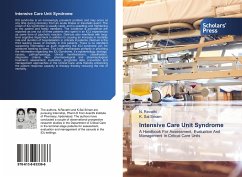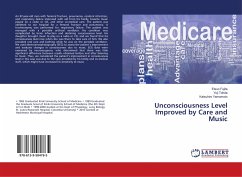ICU syndrome is an increasingly prevalent problem and may occur at any time during recovery from an acute illness or traumatic event. The onset of ICU syndrome is usually rapid, and is upsetting and frightening to the patient and family members. The incidence & prevalence are reported as one out of three patients who spent in an ICU, experiences as some form of psychotic reaction. Delirium also manifests with long-term cognitive impairment in addition to causing an increase in mortality rate and duration of hospitalization in critically ill patients. Delirium is the third leading cause of mortality in ICU patients. There is no standard supporting information as such regarding the ICU syndrome yet, for someone seeking to learn. This book emphasises primarily in providing the information regarding the ICU Syndrome, it¿s epidemiology, etiology, causes, pathophysiology, clinical manifestations, classification, diagnostic criteria. Non- pharmacological and pharmacological treatment, assessment, evaluation, prognostic data, prevention and management approaches in the Critical Care units thereby enhancing the patient response capacity to therapy thereby reducing the risk of mortality.
Hinweis: Dieser Artikel kann nur an eine deutsche Lieferadresse ausgeliefert werden.
Hinweis: Dieser Artikel kann nur an eine deutsche Lieferadresse ausgeliefert werden.








